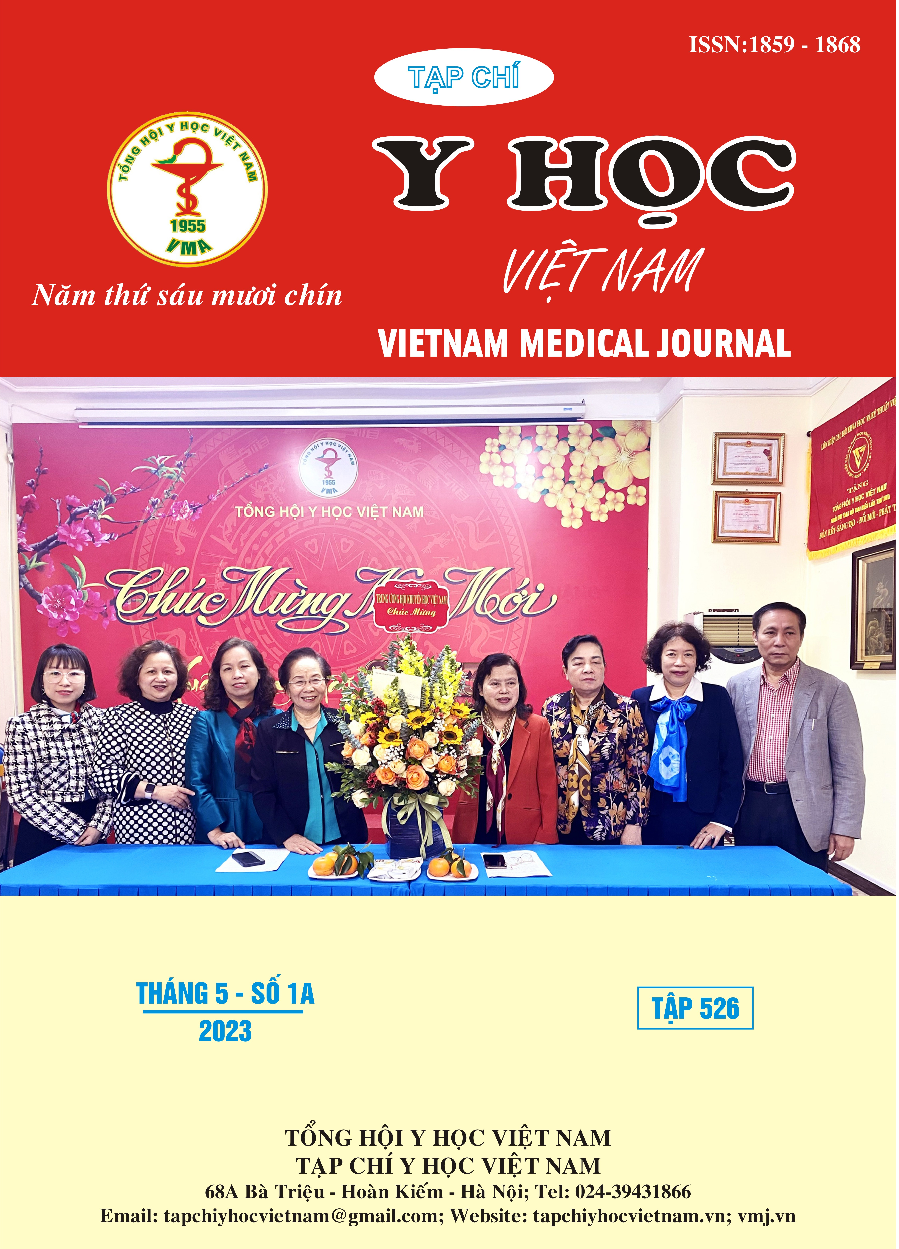EVALUATION INITIAL RESULTS OF TREATMENT ELEVATED LIVER ENZYMES WITH BIBISO
Main Article Content
Abstract
The combined use of Western and Eastern medicine is increasingly being used by many hepatologists in the treatment of elevated liver enzymes. Today, many modern medical studies show that folk remedies for the hepatobiliary disease have the effect of lowering liver enzymes, lowering blood cholesterol, and preventing the formation of atheroma and blood clots. Methods and subjects: A prospective, cross-sectional study on 36 patients diagnosed with typical liver enzyme elevations who were treated with bibiso. Research results: The most common age group was under 45 years old, accounting for 47.2%, and men had increased liver enzymes more than women (the rate was 77.8% and 22.2%). such as yellow eyes reduced (from 33.3% → 5.6%); generalized itching decreased (from 80.6% →8.3%); ie in the right lower quadrant (83.3% → 19.4%); Dark urine, reduced yellow stools (97.2% → 5.6%); Nausea, flatulence, abdominal distension, anorexia decreased (91.7% → 13.9%); Mental depression, decreased sex drive (100% → 33.3%). Using Bibiso for 1 month of treatment reduced the rate of high SGPT liver enzymes from 86.1% to 72.2%, after 2 months remaining 58.3%. SGOT liver enzymes from 97.2% after 1 month of treatment to 94.4% and 86.1% after 2 months. GGT liver enzymes from 63.9% after 1 month of treatment to 52.6% and 50% after 2 months. After 3 months of treatment, the target liver enzymes decreased significantly, reaching only 27.8% SGPT, 47.2% SGOT, and 36.1% GGT patients with pathological indexes. This rate of change was significant. statistics (p < 0.05). Bibiso drug has the most obvious effect after 03 months of continuous and stable treatment for the treatment of elevated liver enzymes. A number of factors affect treatment results: adherence to regular medication is relatively high, accounting for 88.9%, and treatment results for elevated liver enzymes are also positive. Diet, living, and exercise according to instructions have a good effect on treatment results, 72.2% take anti-inflammatory pain relievers, and depression, 61.1% exercise regularly, 50% eat in moderation, and 19.4% have a habit of drinking alcohol and beer. Thus, the proportion of patients using drugs accounts for the highest proportion and the proportion of patients with harmful habits accounts for the lowest rate. Conclusion: Bibiso is an effective liver enzyme treatment drug in the treatment of mild and moderate elevation of liver enzymes, with few side effects and convenience. The treatment with Bibiso for patients with elevated liver enzymes is effective, so it can be included in the treatment regimen.
Article Details
Keywords
kết quả điều trị, tăng men gan, yếu tố liên quan
References
2. Miller GC, Clouston AD. Hum Pathol (2019), “Adult onset of genetic disorders in bile acid transport in the liver”.
3. Nguyễn Bá Kinh và cộng sự (2006), “Đánh giá tác dụng của thuốc Liv – 94 làm giảm và sạch HbsAg trên bệnh nhân viêm gan mãn tính”, Tạp chí Y học Việt Nam.
4. Trịnh Thị Xuân Hòa, (1999), “Nghiên cứu điều trị hỗ trợ bệnh nhân viêm gan virus B mãn tính thể hoạt động bằng thuốc từ Cà gai leo lâm sàng giai đoạn 3”, tại 3 bệnh viện 103, 354 và 108
5. Nguyễn Trọng Thông (2006), “Tác dụng của Giải độc gan Tuệ Linh điều trị hạ men gan”, Tạp chí Y học Việt Nam.
6. Nguyễn Thượng Dong (2018) Nguyên Viện trưởng Viện Dược liệu, Bộ Y tế, “Các dược liệu giải độc gan, hạ men gan đang được sử dụng trong cộng đồng”, Báo cáo tại Hội nghị Gan mật toàn quốc lần thứ XIV tại Hà Nội
7. Đinh Quý Lan (2018) Chủ tịch Hội Gan mật Việt Nam, “Cảnh báo 80% người bệnh gan mắc sai lầm trong điều trị”, Hội nghị Gan mật toàn quốc lần thứ XIV tại Hà Nội.


